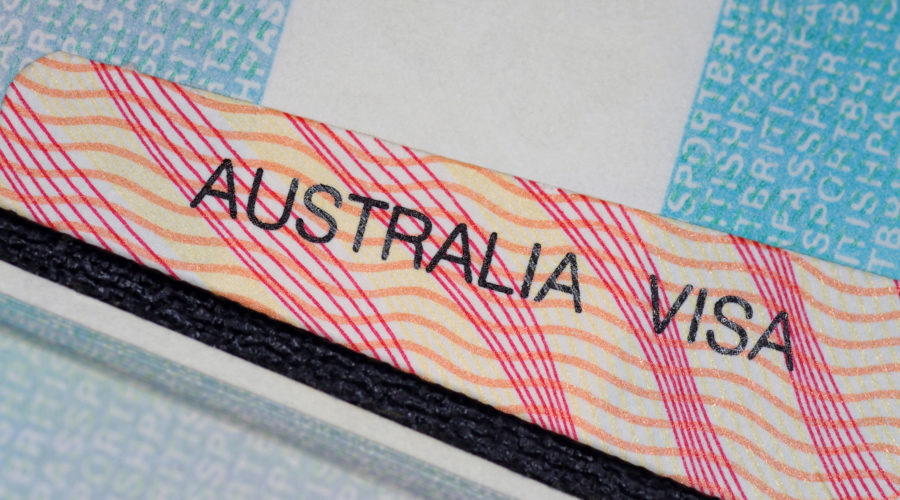Further updates to the work visa program
In addition to the changes made to the work visa program in April 2017, further adjustments have been introduced on 1 July 2017 which we have summarised below.
Temporary Work visa (subclass 457)
Training Requirement
The Department of Immigration has published a new instrument on how it assesses the training benchmark B requirement. The refinements include the fact that only the salary expense of a person whose sole duty is to provide training can be counted as an expense. Previously, the proportionate expense of any employee delivering training could be constituted as a training expense.
Fees paid to external trainers, associated costs for attending training, purchase of eLearning standalone training programs, salary payments to Australian apprentices and graduates who are part of a structured training program and expenditure to attend conferences for continued professional development continue to be accepted by the Department as a training expense.
Mandatory character checks
All applicants over 16 will have to provide a police clearance certificate from each country they have resided for more than 12 months in the last 10 years.
New sponsorship list
The Department has updated the list of occupations available for sponsorship. 36 occupations have been added back to the list including Retail Buyers (639211), Tailors (393213) and Butchers (351211).
Several occupations have been moved from the Short Term Skilled Occupations List (STSOL) to the Medium and Long-term Strategic Skills List (MLTSSL) such as Chief Executive Officers (111111), Corporate General Manager (111211), Faculty Head (134411), Chief Information Officer (135111), Statistician (224113), University Lecturer (242111) and Software and Applications Programmers not elsewhere classified (261399).
This now means the above occupations are eligible for a four year 457 visa.
English language threshold exemption removed
Previously, applicants who were being remunerated above a base salary of $96,400 were exempt from having to demonstrate their level of English. This is no longer the case unless they are nationals of New Zealand, United Kingdom, United States of America, Canada or Ireland.
Applicants must secure the following scores of an English language test:
- IELTS: 5.0 overall with no less than 4.5 in each band
- OET: score of at least a ‘B’ in each component
- TOEFL iBT: score of 36 and no less than 3 for listening, reading components while writing and speaking must be no less than 12.
The above would not apply if the applicant has studied at a secondary and/or tertiary level institution where all subjects were delivered in English for at least five years.
Updated caveats
The Department has updated the caveat requirements for the following occupations:
- Chief Executive Officers – must now be remunerated above $180,001 per annum
- Corporate General Manager – must now be remunerated above $180,001 per annum.
Both these occupations previously had a base salary caveat of $90,000.
Employer Nomination Scheme (subclass 186) – Direct Entry stream
New occupations list
All applicants under this stream must nominate an occupation which appears either on the MLTSSL or STSOL list.
Refining the skill and English language exemption requirement
Previously, applicants who were being remunerated above the Australian Tax Office’s high income threshold ($180,001) were exempted from having to provide proof of their skill or English language ability at the time of application. The Department has removed this exemption.
Only researchers, scientists, technical specialists who are nominated by an Australian scientific agency or individuals nominated by Australian universities as lecturers, tutors or faculty heads are automatically deemed skilled at the time of application.
These new exemptions apply to current and pending ENS applications.
Lowering the age requirement
Applicants have to be under 50 years of age (previously 45) at the time of application. Only researchers, scientists, technical specialists who are being nominated by an Australian scientific agency are exempted from the age requirement.
New Zealand citizens who have been working in the role for the nominating employer for two years would also meet the age exemption requirement.
We will be sharing further updates as they become available.
Contact
Mark Dunphy
Partner
Mark is an employment lawyer experienced in litigious and non-litigious applications of employment and industrial relations law.
Kristopher Kunasingam
Partner & Head of Migration
Kristopher leads the firm's migration practice. He specialises in employment-related migration to Australia.
Related practices
You might be also interested in...

Migration Services | 19 Apr 2017
Changes to the work visa program
The Federal Government yesterday announced significant changes to the work visa program in Australia.

Migration Services | 26 Mar 2017
Änderungen des 457 Arbeitsvisums
Die australische Regierung hat am 18.04.2017 eine bedeutende Änderung des 457 Arbeitsvisums bekannt gegeben.




